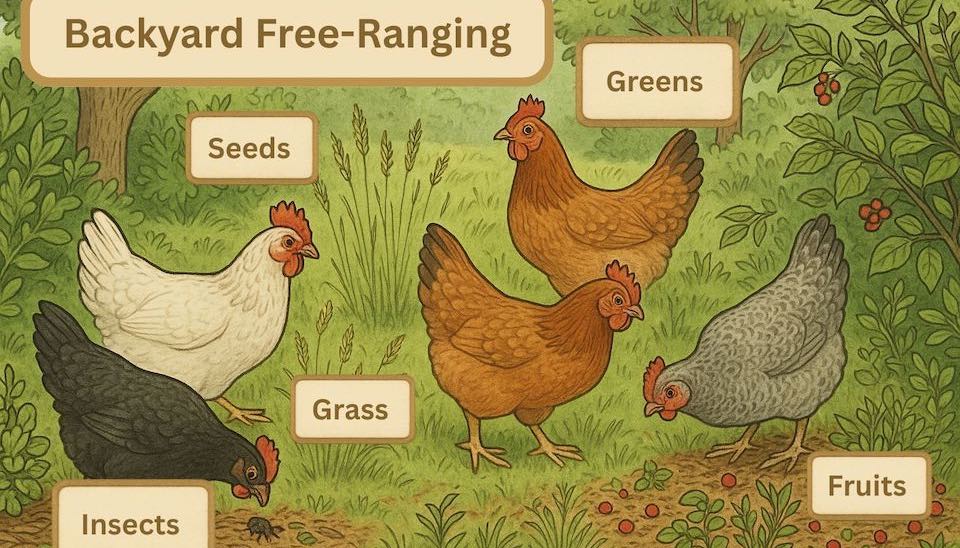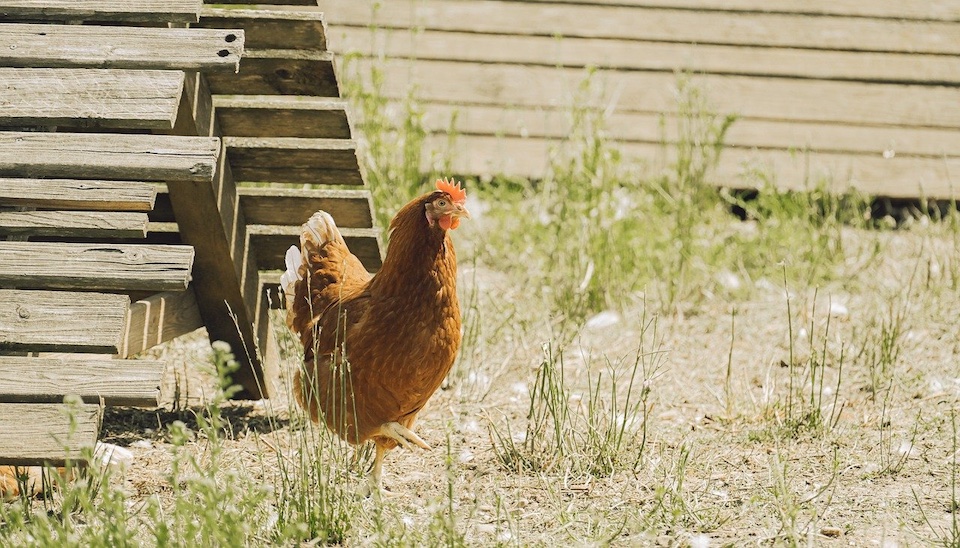Poultry Avian Influenza - Backyard chicken keeper's guide
Avian Influenza in Poultry
Last updated 16th July 2024
The latest bird flu (Avian Influenza) outbreaks in Australia have shut down poultry shows and affected chicken keepers in Victoria, NSW and the ACT. While only chicken keepers in the infection zones need to keep their birds contained and comply with other control measures, all chicken keepers should be on the lookout for signs of Avian Influenza in their flock.
There are many different strains of Avian Influenza, just like there are different variations of human influenza. Globally, one particular strain of Avian Influenza has caused what is essentially a pandemic in wildlife. Since 2021, thousands of birds have died due to the disease, which has also spread to some mammal species. It has caused the worst Avian Influenza outbreaks ever in the UK and the USA. Fortunately, this particularly destructive strain of Avian Influenza is yet to make its way to Australia. The current outbreaks in Victoria, NSW and the ACT are all caused by other strains.
Although the current Avian Influenza outbreaks in Australia are not caused by the hugely destructive strain, it is still important to eradicate the disease to protect the poultry industry, backyard chickens, avian pets and wild bird populations. Measures have been put in place in infection areas to prevent the disease spreading. Similar measures successfully stopped outbreaks of Avian Influenza in NSW in 2013 and Victoria in 2020.
With the current events both in Australia, and globally, it is time for all poultry keepers to refresh their knowledge of Avian Influenza.
Learn how to recognise the symptoms of Avian Influenza and how to prevent Avian Influenza in poultry.
What is Avian Influenza?
Avian Influenza, also called bird flu, is a viral disease of birds. It can be caused by any number of strains of the virus, some of which are more infectious or more harmful than others. The virus that causes bird flu is continually changing and adapting.
Although there have been cases of Avian Influenza infecting humans, the virus does not seem to be transmitted from person-to-person, only from birds.
The virus also does not infect people through eating meat or eggs, although poultry products should be cooked and hands should be washed after handling raw ingredients.
Fortunately, the most likely Avian Influenza virus strain to infect humans is not the strain responsible for the current outbreaks. However, all bird and poultry keepers should take basic precautions when handling their animals, such as washing their hands and not keeping sick birds in the house.
Symptoms of Avian Influenza in Poultry
In many cases, the symptoms of Avian Influenza in backyard chickens and other birds are mild. Sometimes, you won’t even know there is anything wrong with your birds. However, some strains of the virus are more severe. The strain responsible for the current outbreak in Europe, the Americas and Asia is causing widespread death among infected birds.
The symptoms of avian influenza in chickens can include:
- Droopy, lethargic birds
- Diarrhoea
- Breathing difficulties, including sneezing and coughing
- A swollen head or legs
- Purple discolouration of the head and neck, including the comb and wattles, feet or skin
- Swollen eye lids, conjunctivitis or a change of eye colour/cloudiness
- Unusual posture
- Inability to stand or walk
- Poor coordination
- Discharge from the nostrils and eyes
- Decreased egg production
- Sudden decrease in food and/or water consumption
- Puffed feathers
The sudden sickness or death of multiple birds in your flock is a potential sign of Avian Influenza infection and should be reported for testing.
Treating Avian Influenza in Chickens
Unfortunately, there is no treatment for Avian Influenza in chickens.
However, Avian Influenza is a notifiable illness in Australia. If you suspect that your chickens have Avian Influenza, you are legally obligated to notify the government.
Call the Emergency Animal Disease Hotline on 1800 675 888 if you suspect a case of Avian Influenza.
Notifying the government is essential to controlling the disease. It is necessary to control outbreaks of Avian Influenza to protect Australia's wild bird populations as well as people and domestic birds.
How Do Chickens Get Avian Influenza?
Avian Influenza generally spreads through droppings, although it can also spread through feathers, saliva, close contact with other birds and even through the air. Chickens that don't have contact with wild birds and have uncontaminated feed and water are very unlikely to get Avian Influenza.
Chickens most commonly get Avian Influenza from wild birds, although it can also come from a new chicken that is infected or even equipment that is carrying the virus.
Contact with droppings, particularly through contaminated feed and water, as well as sharing a Feeder or Drinker with wild birds, is a common way for domestic chickens to get the disease.
Although waterfowl, in particular ducks, are believed to often be the carriers of Avian Influenza in Australia, any wild bird could have the disease, even if it does not have any symptoms. Although we have been lucky so far, it is possible that migratory birds from the Northern hemisphere may bring the strain of bird flu that is responsible for the deadly global outbreak to Australia.
How to Prevent Avian Influenza in Backyard Chickens
The most important thing you can do to protect your chickens from Avian Influenza is prevent interaction with wild birds. Practicing good biosecurity is also important.
You can prevent your birds coming into contact with Avian Influenza by:
- Securing your coop against wild birds
- Ensuring wild birds don’t share your chickens’ Feeder or Drinker
- Only feeding small amounts of scraps in a dish in the coop, so uneaten food doesn’t attract wild visitors
- Netting your chicken run
- Disinfecting the coop regularly
- Disinfecting any equipment that is shared between flocks or is second hand
- Ensuring visitors to your coop haven’t had contact with other birds
- Quarantining new birds before introducing them to your flock
How to Prepare for an Avian Influenza Outbreak in Australia
Hopefully, the current Avian Influenza outbreaks in Australia will be contained without further spread. But if there was an outbreak in your area, would you be prepared?
In an outbreak area, all birds must be kept indoors - this includes free-range poultry. Do you have a plan for how you would contain your birds if you needed to keep them indoors for an extended period of time? Perhaps you already have a sizeable chicken coop or a roofed chicken run, but if you don't, you should think about how you might be able to make a small, enclosed and roofed yard for your chickens.
Chickens that are enclosed in a small space tend to get bored, which often leads to bullying. Make sure you have a repertoire of chicken amusements up your sleeve and ideally a garden, so you can pick large bunches of greens and other treats for your birds.
Another thing to think about is your water source. Although Avian Influenza is unlikely to be found in rainwater, it is possible if a bird with the disease pooped on your roof. The disease could also be transmitted through pond water where infected birds have swum. This is probably only a risk in the case of a severe outbreak, but do you have a clean water source for your chickens, such as town water or bore water?
How Dangerous is Avian Influenza to People?
Although Avian Influenza has been known to spread from birds to humans, it only does so rarely. Most strains of Avian Influenza do not easily pass to humans. Furthermore, in most cases Avian Influenza causes only mild symptoms in people.
In order to contract Avian Influenza from a bird, you must have very close contact with an infected bird or fail to follow good hygiene such as washing your hands etc. Human-to-human transmission of the disease is uncommon.
How to Keep your Family Safe from Avian Influenza
The easiest way to keep your family safe from Avian Influenza is to protect your birds from the disease, as outlined above, and have good chicken coop hygiene.
Good chicken coop hygiene means the same practices you use to protect yourself from all chicken illnesses. They seem like common sense, but you’d be amazed how often people forget!
- Wash your hands after handling birds or eggs
- Never bring birds in the house
- Avoid close contact with sick birds
- Cook chicken meat and eggs
- Wear a mask when cleaning dry or dusty droppings
Practicing good biosecurity and reporting any symptoms in your flock is also key.
Disinfecting your chicken coop when you clean it is also an effective way to prevent Avian Influenza in your flock, helping to protect your family.
For more advice on keeping yourself and your family safe from Avian Influenza by practicing good biosecurity, click here.
Happy chicken keeping!
Rachael - Dine a Chook Australia
You may also be interested in these articles:



